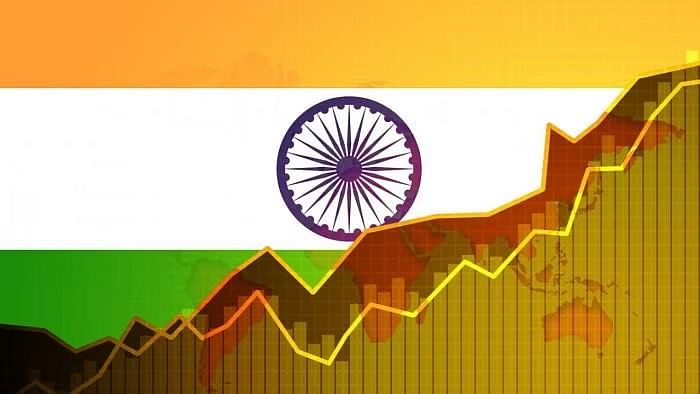
Representative image for economy.
Credit: iStock Photo
New Delhi: The performance of the Indian economy has been satisfactory during the first half of the ongoing fiscal year but concerns remain with regard to demand conditions going forward, the finance ministry said in a report.
The outlook for the Indian economy is good, underpinned by a stable external sector, positive agricultural outlook, expected improvements in demand supported by the festival season, and the likelihood of an increase in government spending, which will boost investment activity, it said.
However, at the margin, demand conditions in the economy bear watching, the September edition of Monthly Economic Review released by the Department of Economic Affairs on Monday said.
Urban demand appears to moderate due to softening consumer sentiments, limited footfall due to above-normal rainfall, and seasonal periods during which people tend to refrain from new purchases.
Further, risks to growth arise from escalating geopolitical conflicts, deepening geoeconomic fragmentation and elevated valuations in financial markets in some advanced economies, it said.
Their spillover effects on India could cause negative wealth effects, impacting household sentiments and altering spending intentions on durable goods, it said.
After two months of low inflation, consumer price inflation rose in September, primarily driven by the effects of erratic monsoon on a few vegetable supplies.
Barring a sharp rise in prices of a few vegetables, inflation appears well contained, it said.
In the medium term, it said, favourable factors, such as rejuvenated reservoir levels, healthy Kharif crop sowing brightening the agriculture output prospects, and ample food grain stocks, would help contain price pressures.
Sentiment towards India among international direct and portfolio investors is positive, it said, adding that sustaining the growth momentum is essential to turn these positive sentiments into actual direct and portfolio investments in the country.
However, foreign investors have continued selling in the Indian market, pulling out a massive Rs 85,790 crore (around USD 10.2 billion) from equities this month due to Chinese stimulus measures, attractive stock valuations, and the elevated pricing of domestic equities.
October is turning into the worst-ever month in terms of foreign fund outflows. In March 2020, FPIs withdrew Rs 61,973 crore from equities.
The latest outflow came after a nine-month high investment of Rs 57,724 crore in September.
The report said the external sector continues to perform well, as reflected in rising capital inflows, a stable rupee and comfortable foreign exchange reserves. Forex reserves surpassed the USD 700 billion mark at the end of September 2024, making India one of the top four countries with more than USD 700 billion reserves.
With regards to the job market, the report said the manufacturing sector continued to show rising employment, as reflected in the Annual Survey of Industries results for 2022-23.
"High-frequency indicators, such as the net payroll additions under the Employee Provident Fund Organisation (EPFO), Purchasing Managers’ employment sub-index and NaukriJob Speak index, highlight a rise in formal employment generation. All that said, anecdotal reports of the deployment of Artificial Intelligence displacing workers are beginning to emerge. That needs watching," it said.
Given the overall subdued inflation, barring a few food items, the real price of money may have gone up, it said, adding, "we maintain that the Indian economy will grow between 6.5 and 7.0 per cent in the current fiscal year".
Risks stem from global factors such as geopolitical conflicts, rising geo-economic fragmentation, uncertainties about the trade policies of major economies and consequent financial market reactions, it added.